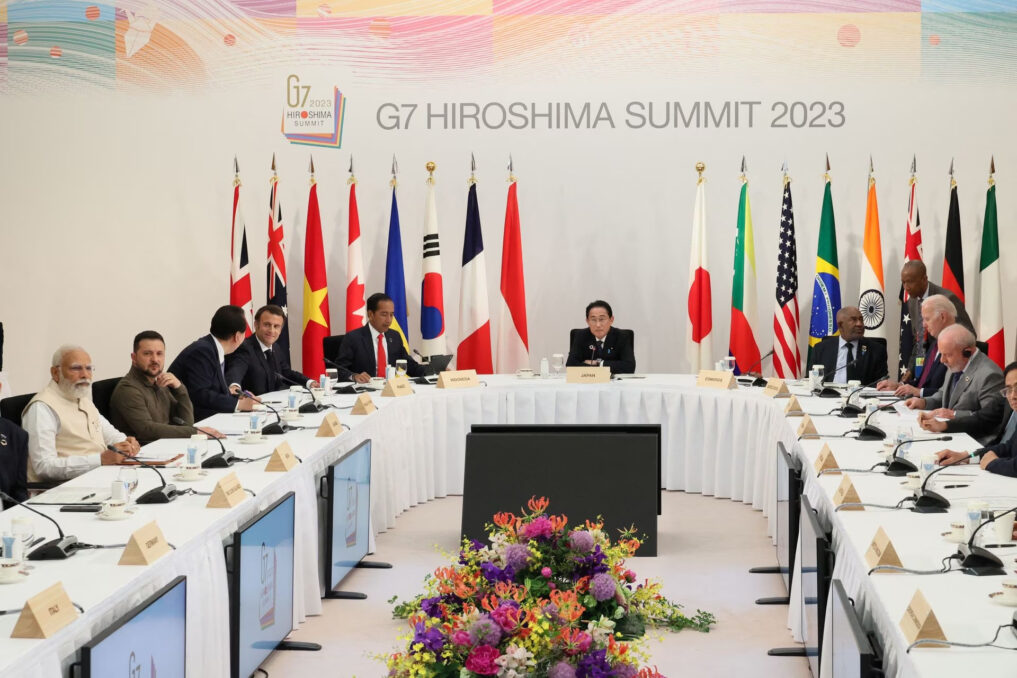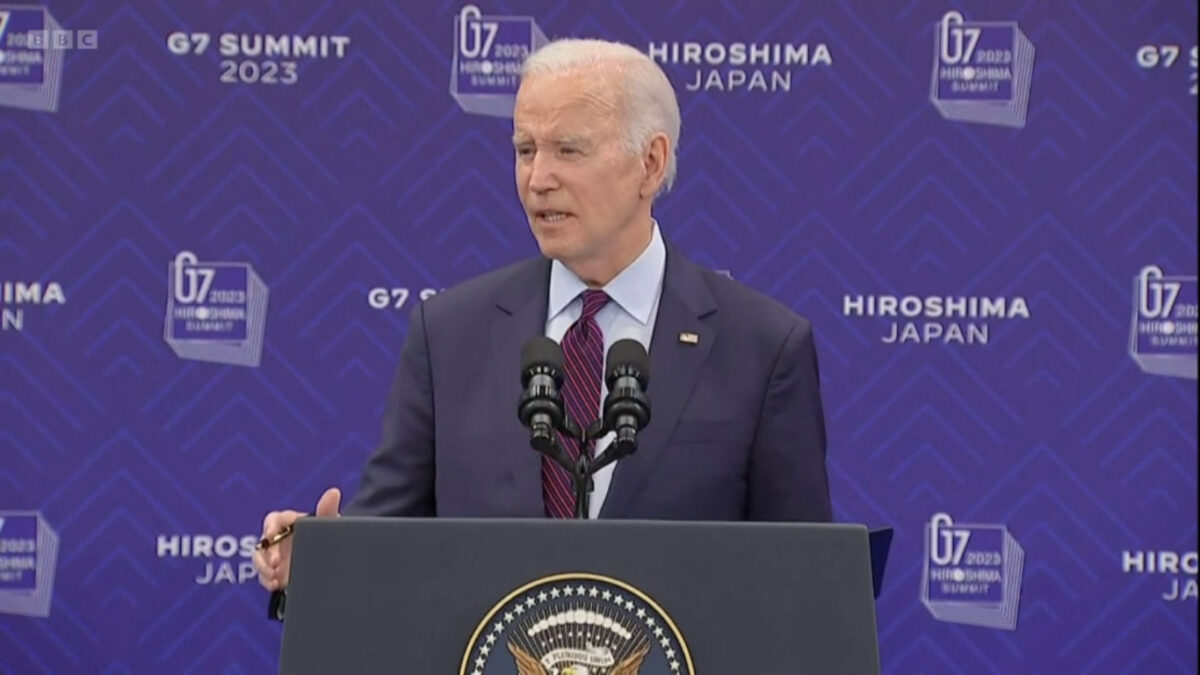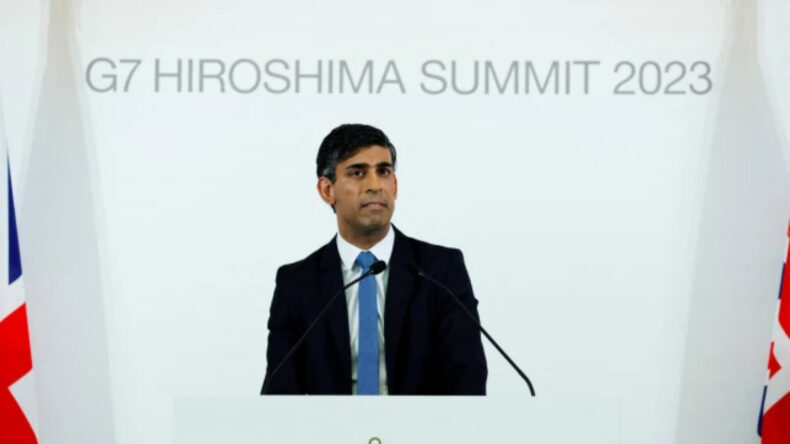British Prime Minister Rishi Sunak called China ‘the biggest challenge of our age’ during a press conference on the final day of G7 Summit at Hiroshima, Japan. He added that Beijing’s increasingly authoritarian behavior at home along with its assertive approach towards other countries is a growing threat to global security.
This year’s G7 talks primarily focused on measures to decelerate Russia-Ukraine conflict and to keep China’s economic aggression in check by seeking ‘constructive and stable relations’ with Beijing.
Meanwhile, Ukrainian President Volodymyr Zelensky arrived at Hiroshima on Saturday to participate in a series of Bilateral talks with G7 leaders over Ukraine Crisis hoping to add momentum to his country’s war efforts against Russia. UK stands firmly on its position to help Ukraine by declaring “we will stand with Ukraine as long as it takes because their security is our security”.
Sunak also hailed Zelensky’s presence in Hiroshima as a moment of Historical significance adding that Ukraine must win the war, and gain a lasting and just peace.
As part of his promise, Sunak agreed on providing training to Ukrainian pilots to fly F-16 Fighter jets following Washington’s approval to allow allies to send F-16 jets to Ukraine, for which Zelensky had been lobbying the US for months.

High legal migration to the UK
Sunak also remarked on the alarming rate of legal immigration of foreign students and their dependents owing to some reports suggesting that net migration to the UK last year could almost reach one million in number.
A recent report titled ‘Net Migration to the UK’ published by The Migration Observatory, University of Oxford suggested that the net migration was unusually high in 2022 as several factors including the war in Ukraine came together at the same time. While there is no clear plan of action on this issue yet, Sunak has agreed to consider a range of measures to bring the statistics down.
De-risking, not decoupling
China is a grave challenge to global peace, security and economy, but as Sunak states, other leading national economies should not aim to fully decouple from it. Instead, the G7 countries are planning to take steps to prevent China from using economic coercion in order to interfere in the sovereign affairs of other nation states.
Tensions in the Asia-Pacific have risen ever since China has aggressively asserted its self-governance over Taiwan following which US House of Representatives Speaker Nancy Pelosi had visited Taiwan sparking off unprecedented military provocations from China.
Mr. Sunak addressed the conference stating that the G7 countries along with other nations will work together to ensure that we can de-risk ourselves by taking steps to protect ourselves from hostile environment without damaging the interests of each other.
Allies will support Ukraine: Biden
In a live press conference, US President Joe Biden stressed the importance of not being dependent on Chinese supply chains, resisting economic coercion and countering ‘harmful practices that hurt our workers’. The US has also earlier announced its 38th military package amounting $375 million for Ukraine.

Biden, like Sunak, has stressed over the joint decision made by G7 countries to ‘de-risk and diversify’ instead of decoupling. He has also confirmed the G7’s mutual and unwavering commitment to stand with the brave Ukrainians, stressing that Putin will not break our resolve.
As far as the Taiwan issue is concerned, President Biden has said that the US will continue to put Taiwan in a position where they can defend themselves and that there is a unanimous agreement among US and its allies that any Chinese unilateral attack on Taiwan would result in an inevitable response escalating into a conflict.













